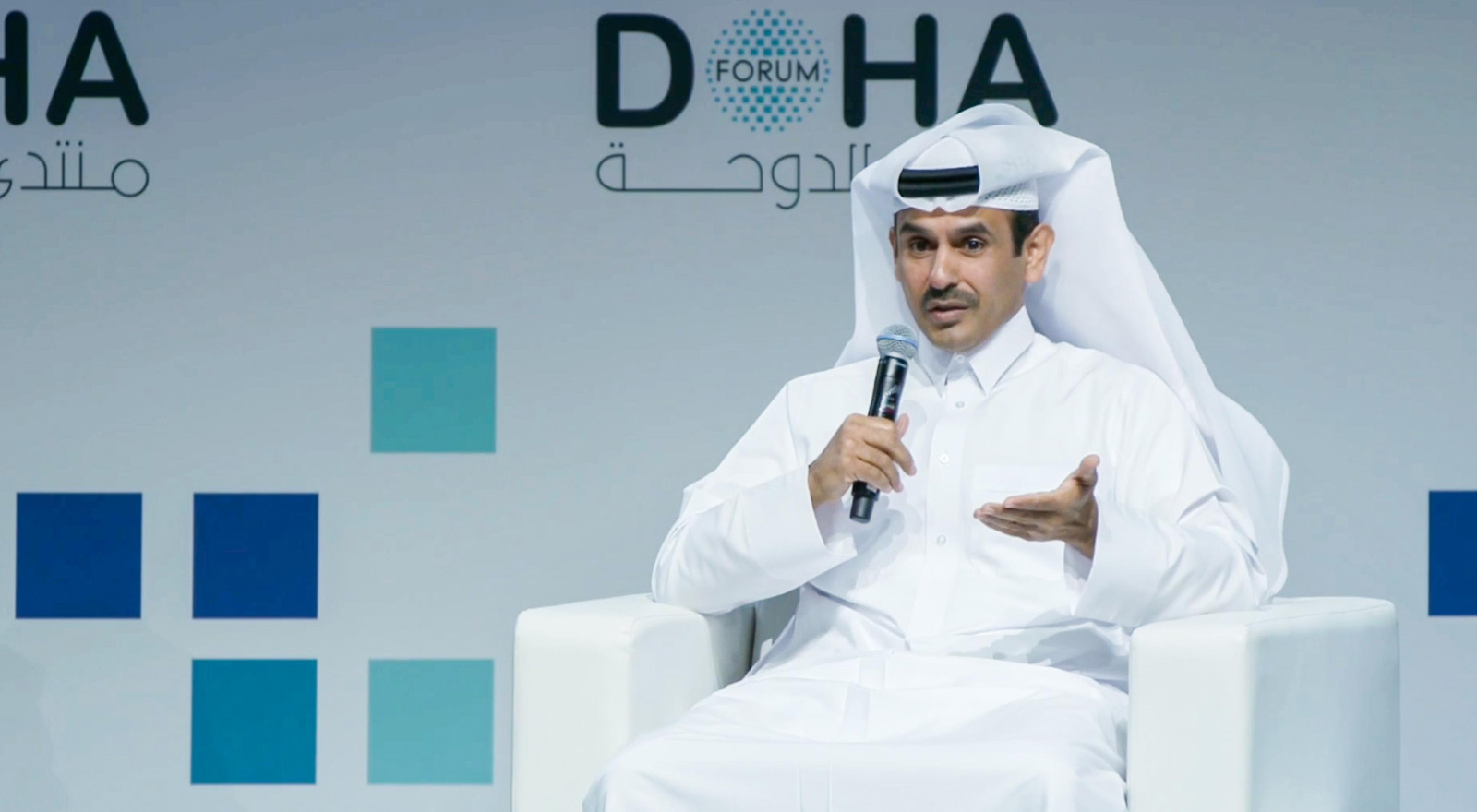This story requires a subscription
This includes a single user license.
During the Doha Forum held on Saturday, al-Kaabi said Qatar stands in total support of the concept of the EU corporate sustainability due diligence directive (CS3D), and of the desire to protect and uphold human rights, labor rights, and reducing environmental impact.
However, “the issue is how you go about it.”
This directive affects any company that deals in Europe and makes more than 450 million euros ($476 million) generated in or from Europe.
“So, companies like QatarEnergy, Shell, or ExxonMobil, and even car companies like Toyota or GM, will have to say they will abide by the Paris accords. So, the company will have to commit to net zero,” al-Kaabi explained.
“For us as QatarEnergy, and with all the expansions we are undertaking, I can assure you we cannot meet net zero as a company,” he said.
“The second thing is that we need to make sure we put a team of probably a thousand people in QatarEnergy whose dedicated job would be to go and look at all our subsidiaries and suppliers around the world, because if there is a nail or a screw that we buy from a contractor who has a subcontractor, we will be responsible for looking into their practices and would get penalized for that,” he said.
“This makes absolutely no sense”
“We are also asked to be responsible for tier emissions 1, 2, and 3 and be liable for a penalty of up to 5 percent of our total generated revenue worldwide. This makes absolutely no sense,” al-Kaabi.
“So, my message to Europe and to the EU Commission is: are you telling us that you don’t want our LNG into the EU? Because I sure am not going to supply the EU with LNG to support their energy requirements and then be penalized with our total revenue worldwide,” he said.
Moreover, Al-Kaabi said investment authorities, like Qatar Investment Authority (QIA), or any sovereign fund or fund manager around the world will worry about the companies they own or plan to own whether they could be liable for such penalties, which would affect their investments and end up pulling out of the EU to protect their funds and look at investing in other countries.
“So, I think what the EU is doing is really surprising, and I think it will harm them. And for companies that will have to comply, will need to put an army of people to do all this diligence. If there is more cost on the company to do this diligence, who ends up paying for it? The customer. This will harm European companies first,” he said.
Massive expansion
QatarEnergy is currently working on the giant North Field LNG expansion program, which includes the North Field South and North Field West projects.
Together, these will raise Qatar’s LNG production capacity from the current 77 mtpa to 142 mtpa in 2030.
In February, QatarEnergy also announced the North Field West project which will add 16 mtpa of LNG to the overall expansion of the North Field.
Outside Qatar, QatarEnergy and its partner ExxonMobil are building the Golden Pass LNG export plant in Texas with a capacity of more than 18 mtpa.
He also highlighted QatarEnergy’s LNG expansion projects that will double its production capacity, adding to that 18 million tons from the Golden Pass project in Texas.
He said QatarEnergy is doing the expansion in a “very responsible way” with carbon capture, using some solar, while LNG will fuel more than 125 of QatarEnergy’s LNG ships.
“We are big believers in making sure that we have clean air and clean water for everybody living in Qatar and around the world,” he said.
“A few years ago, we had zero renewables in Qatar. Today, 10 percent of the power that we are enjoying comes from solar. Next year, it will go up with another two plants that we are going to inaugurate in Mesaieed and Ras Laffan taking the total solar production to about 15 percent to 16 percent,” he said.
“With the addition of a fourth plant in Dukhan, we will increase our solar capacity making it 30 percent of our total power production,” al-Kaabi said.

